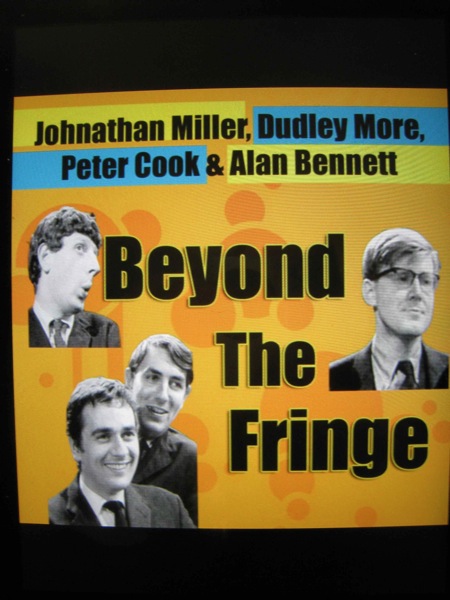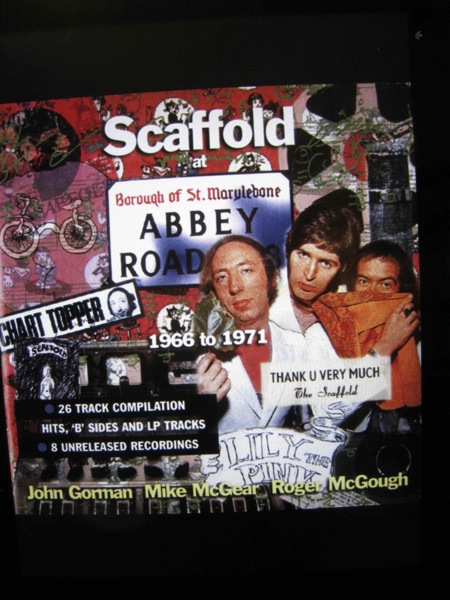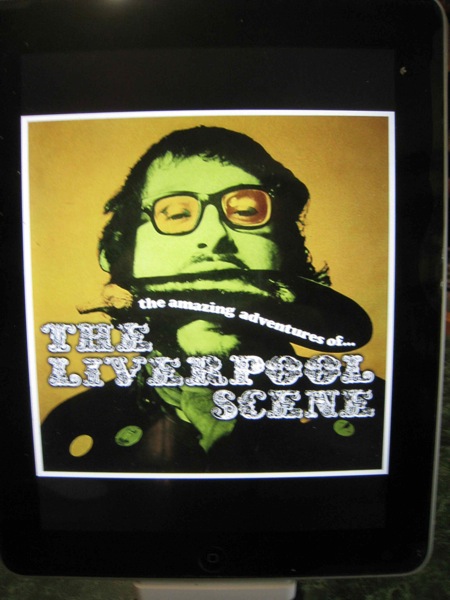Three Period Pieces
Beyond The Fringe (3.5*)
The Amazing Adventures of the Liverpool Scene (3.5*)
Scaffold At Abbey Road 1966 to 1971 (3*)
Nostalgia, according to some, isn't what it used to be, but then again things in general ain't the way they used to be either, which is probably the point behind the whole nostalgia thing anyway.
I'm not sure about anyone else, but when I get nostalgic it's an exercise in recalling the way things used to be and figuring out how they've changed, which is basically the motivation behind my Interesting Times project as I try to make sense of some of the things that I've been on the fringe of over the past fifty-odd years.
Some of them, as the reader may imagine, were very odd indeed, and reconnection with Steve and Rhonda Doyle at Bloodwood brought back memories of JCUNQ Commem Week Revues, gentlemen named Charlie and Kimbo and Saturday night’s Underworld in St Matthew's Church Hall.
Underworld was the scene where Hughesy indulged in the odd spot of poetry reading, and while most of the source volumes are long since lost, I still have a copy of Penguin Modern Poets 10: The Mersey Sound and a slim volume of verse from Roger McGough.
I haven't revisited those recently, and haven't looked too far when it comes to tracking down copies of The Children of Albion anthology, Pete Brown's Let It Roll, Kafka, or Jeff Nuttall's Bomb Culture, all of which were key texts in that particular time and place but reminiscences of hirsute gentlemen proclaiming For mine brother Jacob is an hairy man had me heading over to the iTunes Store to check the availability of various early sixties British comedy.
A quick perusal had Hughesy buying the soundtrack from Beyond The Fringe (remarkable value for 42 tracks at $8.99), The Amazing Adventures of the Liverpool Scene ($35.99, but 33 tracks, over two and a half hours of material) and Scaffold At Abbey Road 1966 to 1971 ($10.99).

Now, what's under discussion here isn't going to be everybody's cup of tea, and playing through Beyond the Fringe seems to deliver sequential variations on the same sketch from different sources, but as content to throw some different elements into your shuffle mode listening it works just fine. If Hughesy was still polluting the local airwaves Bowen listeners would probably be subjected to repeated musings on Peter Cook's lack of Latin for the judging, and the memorable Peter Cook and Dudley Moore one-legged man auditioning for the role of Tarzan sketch.
We're talking close to fifty years after the act, which was topical at the time, so there's a certain amount of datedness kicking in, but a wander through the track listing is, at least as far as Hughesy's concerned, a chance to revisit some of the classic years of British antiestablishment humour.
Tracking down The Liverpool Scene and Scaffold, on the other hand, was prompted by a largely forgotten fascination with the poetry of Adrian Henri (Liverpool Scene) and Roger McGough (Scaffold) and it's interesting to note how the works of the two gentlemen have aged over the years.
The Mersey Poets were, largely, working in pop poetry mode, which was what made them ideal for Hughesy's Underworld readings, and a glance through the index of Penguin Modern Poets 10 reveals a preponderance of McGough over Henri when it went to pieces actually read.
Given the time gap there's no way of fathoming why that should be so, and using pencilled asterisks in the index isn't the most scientific research tool, but I suspect McGough's rather poppier offerings worked better in that setting than Henri's more consciously poetic approach.
Interesting, because forty years later a listen to both albums suggests Henri's Liverpool Scene have aged rather better than McGough's Scaffold.
Both, of course, need to be approached as period pieces that are very much a product of the times, with or without a substantial side serving of nostalgia and fond memory.
There's also (one suspects, in the absence of empirical evidence) a degree of difference in approach based on the presence or otherwise of actual musicians with actual chops, a significant variation in the sort of live work each outfit was able to manage and, more than likely, record company issues that differentiated between the EMI-signed Scaffold with the Beatle connection confirmed through Paul McCartney's brother Mike McGear as a member of the trio and the RCA-signed Liverpool Scene.
The third member of Scaffold, apart from poet McGough and singer McGear, was actor John Gorman (allegedly the most loony of the three).

Coming out of a Liverpool arts lab, Scaffold found work around colleges, arts festivals but one suspects that the recorded output was aimed towards a mainstream audience rather than the fringes around the colleges and festivals and much of the material on At Abbey Road 1966 to 1971 would have worked well in environments like TV variety shows. Alongside the familiar hit singles (Thank U Very Much, Lily the Pink and Do You Remember, catchy little lightweight ditties that were almost guaranteed radio airplay) there's a strong element of Gang Show (Gin Gan Goolie) and Rugby song (2 Day's Monday) in a collection that is rather light on for the pop poetry I was looking for. Still, at $10.99…

Henri's Liverpool Scene, on the other hand, while emerging from the same arts lab scene, headed towards the fringes rather than the mainstream, featuring on underground DJ John Peel's radio shows and included guitarists Andy Roberts and Mike Hart, who had substantial musical chops and went on to develop solo careers.
You'll still find Henri's portentous poetics predominating the mix, but the vocal and instrumental contributions from the others add light and shade to something that's very much a product of its time but provides an interesting listening experience.
Given the price, it's a collection that needs to be approached with caution and sampled at length, but with over two and a half hours of material The Amazing Adventures of the Liverpool Scene weighs in as good value for money as far as Hughesy's concerned.
Your own mileage, of course, may vary.

